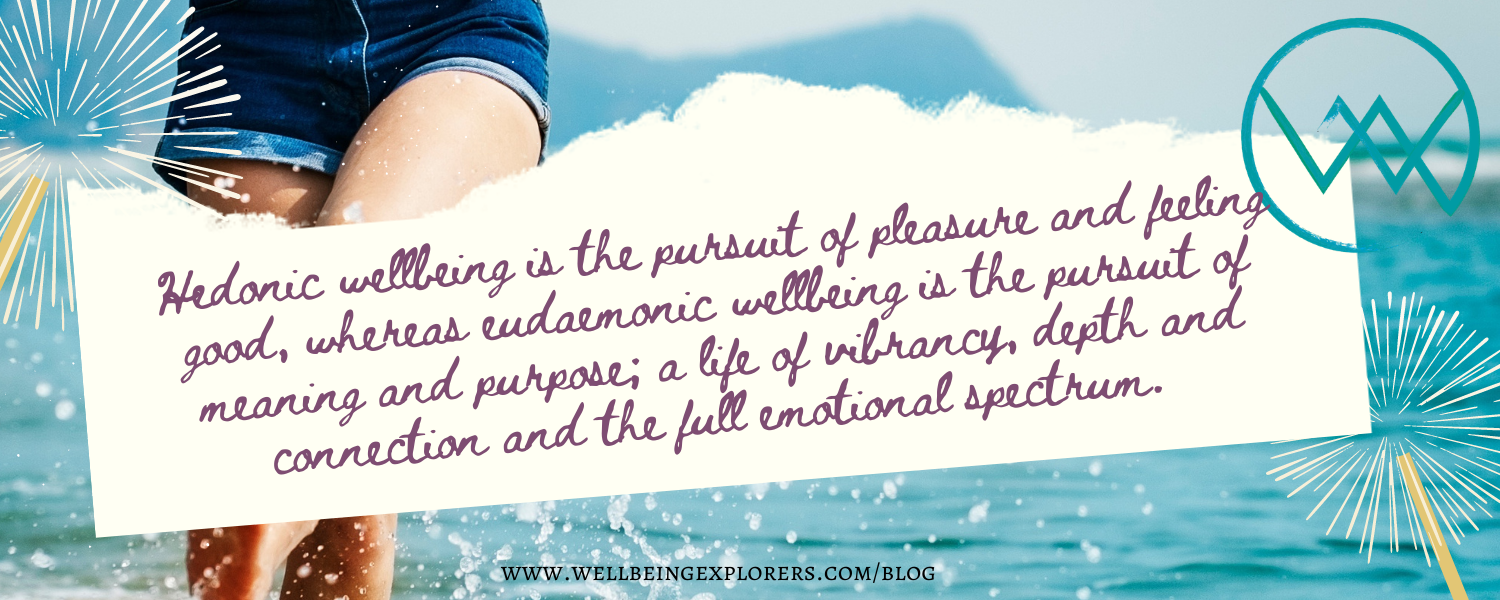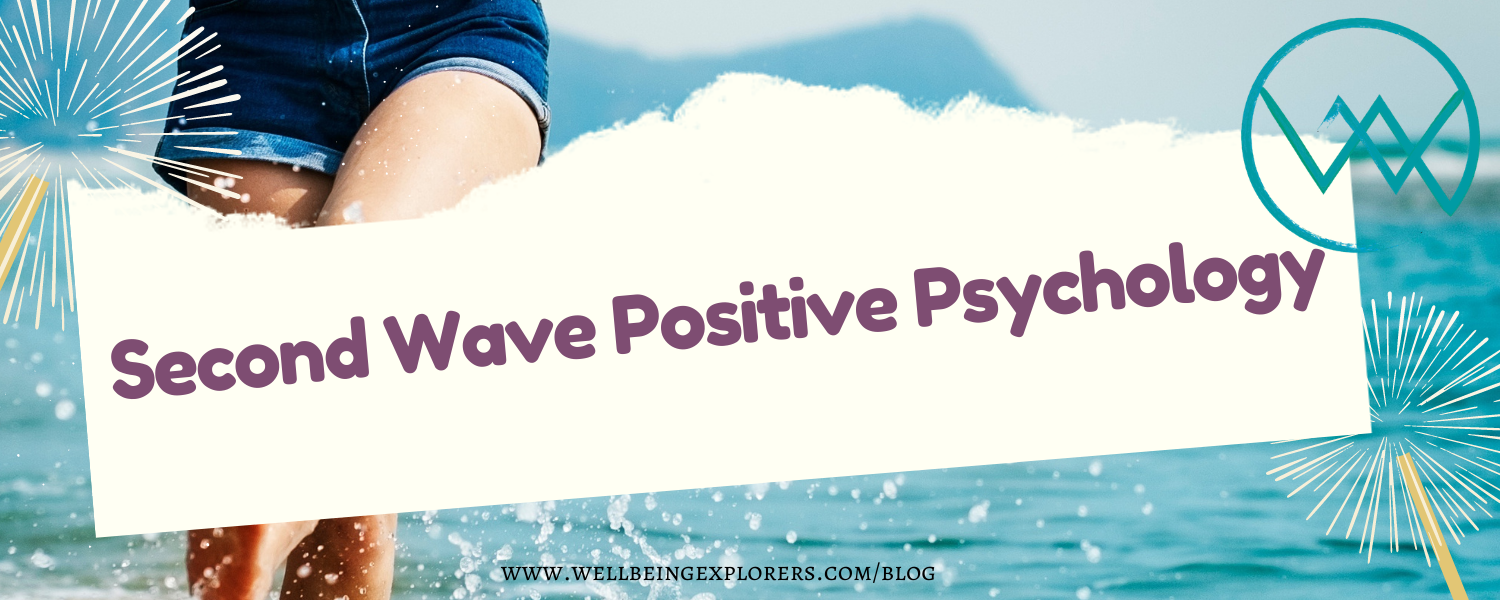What is happiness?
In order to understand what happiness is and how to go about being happy, we have to explore the different socio-cultural norms, ancient religious philosophies and modern research perspectives that try to decipher this elusive topic.
It is elusive. It’s difficult to pin down. For example…
Ask yourself this;
What exactly do I need to be happy?
That’s a hard question to answer.
Our ideas of happiness vary on an individual basis.
Ask yourself this;
Think about all the people you grew up with, and the people you are closest to; do you all have the same idea of what it means to be happy?
Probably not.
We each have our own idea of what we need to be happy; a potent mix of emotions, relationships and experiences that varies across time and space, but sometimes is difficult to actually answer…
There are however cohesive ideas in the positive psychology research and ancient Eastern and Western philosophy about what it means to be a happy, thriving and flourishing human on this planet.
Let’s explore…
The Good Life; Hedonic versus Eudaemonic wellbeing
One of the most dominant theories in modern psychology research is the difference between hedonic and eudaimonic happiness, grounded in the philosophy of ancient Greece. Hedonic wellbeing is the pursuit of pleasure and feeling good, whereas eudaemonic wellbeing is the pursuit of meaning and purpose; a life of vibrancy, depth and connection and the full emotional spectrum.
Ask yourself this;
Do you live your life for pleasure and feeling good, or for meaning and purpose? OR is it a balance of both??
Hedonic wellbeing also involves life satisfaction; how people rate their lives, usually in comparison to their present selves/ situation and their ideal standard. The argument against hedonic wellbeing is its dependence on seeking pleasure and avoiding pain. Research has found people value both pleasure and meaning in seeking ‘the good life’ and fulfilment. Consequently, eudaemonic wellbeing emphasises wellbeing is about the actualisation of human potential through living your life in congruence with your values, serving a larger purpose, living with meaning, and doing what is important, even if it is not pleasurable for you in the moment. Western philosophy from Socrates, Aristotle to Plato, believed that when people pursue a virtuous life, they become authentically happy.
Second Wave Positive Psychology
The science of positive psychology studies what makes individuals and communities thrive. This is a fairly new branch of science, only a few decades old. (Notably, this is what I studied for my masters; Positive Psychology and Coaching Psychology). The discipline has traditionally examined positive emotions, positive thinking and what helps humans flourish. However, second wave positive psychology also investigates and researches difficult and painful experiences.
Ask yourself this;
How do you view your suffering, challenging, stressful and difficult experiences? Are these important for your growth, being a happy, thriving human and living your extraordinary life?
Engaging with the negative or dark side’ can catalyse the potential for a positive outcome for example, growth, healing, insight and transformation. Therefore, in order to engage in the full human experience, we can embrace the suffering and difficulty to learn, expand and use this information towards living a life of purpose meaning and intensely pleasurable experiences. Research is now moving towards ideas such as post traumatic growth, the benefits of negative emotions (including safety) and uncertainty management or moving towards the unknown and leaning into fear. These are all being cited as part of the diverse human experience, and we can use this understanding to thrive in the face of adversity, and flourish in the understanding that life entails suffering. It’s all in how we use those experiences for growth and expansion towards our highest good, the benefit of the good society and our natural environments.
The 90% game changer
Research into happiness studies has always been fascinated by ‘how much is in our control?’ How much of our happiness is actually determined by action? Or how much is determined by our genes, circumstances and other people?
Ask yourself this;
How much of my happiness is internally controlled versus externally?
Researchers did a huge study combining decades of research and theorised that a whopping 90% of our happiness is determined by internal factors. This is HUGE. The breakdown of the 90% is that 50% of our happiness is determined by a genetic set point with 40% being intentional action and behaviour. You are consciously in control of 40% of your happiness. The remaining 10% is your external circumstances and this incorporates your social status, relationships, wealth and education.
It is interesting to note that this is more of a helpful guide and the simplicity of the research has been challenged. My invitation is to use this information as something to motivate and inspire. Obviously there are important individual differences between people so take this with a grain of salt…BUT use it to boost your optimism; you have more control over your happiness and life satisfaction than you might think. Much much more. Embrace it!
Different cultures view happiness very differently. Fascinating research across cultures has explored this by asking people what emotions they need to feel happy.
Ask yourself this;
What emotions do you need to feel happy? (For example joy, peace, excited-ness, mindful presence)
The research discovered that in the West (particularly America) people report that feeling happy involved the experience of joy, exhilaration, excitement, ecstasy, passion…
These are really high intensity positive emotions. They require high energy.
Participants in Eastern cultures describe happiness as the feeling of contentment, peace, serenity, calmness…
These are low intensity positive emotions. These emotions are energising and require low energy output.
What is really interesting is the next layer of this; research is discovering that we are happiest when we experience more low intensity positive emotions like contentment. When we live through experiences that elicit the high intensity emotions like joy, we have the energy to marvel, savour and really enjoy the moment; bounce around, laugh, sing, dance EXPRESS freely and energetically. However, if we are constantly experiencing high intensity emotions, it literally tires our body. Adrenaline and cortisol pumps through our system which after long periods is draining and causes all sorts of issues like inflammation. The thing that blows my mind is that high intensity emotions have the same draining effect on our body regardless of if they are ‘positive’ or ‘negative’. Thus, anger and joy appear the same in the body; it’s all in how we experience them and the meaning we attach. For peak performance and peak health, find balance and appreciation for both high intensity and low intensity positive emotions, and invite more low intensity. Yay for meditation and relaxation! Om!
Final reflections
We have been on an odyssey of happiness. A pilgrimage to uncover the secrets of happiness across time and space.
Here are some self-reflection questions for you to continue the pondering (feel free to share your ideas with the rest of your fellow Wellbeing Explorers):
What did you learn here that either changed your perspective or cemented your understanding of what it means to be a happy, flourishing human?
What are you going to commit to doing to cultivating happiness in your life?
What are you going to learn more about?
What support do you need to feel happy?
I hope this has been an exciting adventure for you and you have learnt some perspectives that support you on your journey to self-mastery, multidimensional wellbeing and an adventurous way of being.
You deserve to live that extraordinary life.
Want to learn more? Get in touch and explore what it means for you to be happy and thriving. CLICK HERE to book in your free 30 minute positive psychology coaching call with Wellbeing Explorers founder, positive psychology coach and Wellbeing Specialist, Emma.









